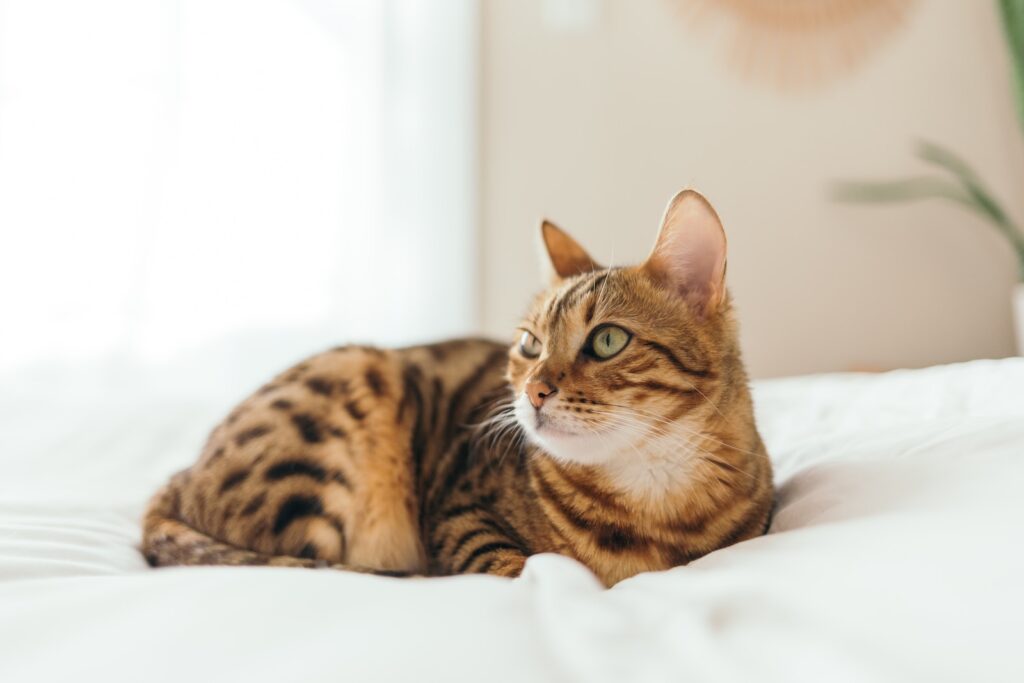Can Cats Eat Mussels? — Yes, They Can
Mussels are safe for cats to eat in moderation. However, there are a few things you should consider before introducing mussels into your cat’s diet.
Can Kittens Eat Mussels?
It is not recommended to feed mussels to kittens. Kittens have delicate digestive systems and their nutritional needs differ from adult cats. Therefore, it’s best to stick to a specially formulated kitten food to ensure they receive the proper nutrients during this crucial growth stage.
Things to consider when feeding mussels to kittens?
Due to the potential risks associated with seafood, it is advisable to consult with your veterinarian before introducing mussels or any other seafood to your kitten’s diet.
Nutritional Benefits of Mussels for Cats — Why Mussels are Good for Cats?
1. High in Protein
Mussels are an excellent source of protein, which is essential for maintaining your cat’s muscle mass and promoting overall growth and development.
2. Rich in Omega‑3 Fatty Acids
Mussels are packed with omega‑3 fatty acids, which can help reduce inflammation, support a healthy immune system, and promote a shiny coat and healthy skin in cats.
3. Provides Essential Vitamins and Minerals
Mussels contain important vitamins and minerals such as vitamin B12, iron, manganese, and selenium. These nutrients contribute to your cat’s overall health and well-being.
4. Supports Joint Health
The omega‑3 fatty acids found in mussels have been shown to have anti-inflammatory properties, which can help alleviate joint pain and promote optimal joint health in cats, especially those suffering from arthritis.
5. Supports Heart Health
Due to their high omega‑3 fatty acid content, mussels can support heart health in cats by reducing the risk of cardiovascular diseases and maintaining healthy blood pressure levels.
Potential Allergies: Can Cats Be Allergic to Mussels?
While mussels are generally safe for cats, some cats may develop allergies or sensitivities to seafood, including mussels. If you notice any signs of an allergic reaction, such as vomiting, diarrhea, or skin irritations, it is important to consult with your veterinarian.
Symptoms of Mussel Allergies in Cats
- Vomiting: Cats allergic to mussels may experience vomiting shortly after consuming them.
- Diarrhea: Digestive issues, such as diarrhea, can occur in cats with mussel allergies.
- Skin Irritations: Some cats may develop itchy skin, rashes, or hives as a result of mussel allergies.
What to Do If Your Cat Shows Symptoms?
- Contact Your Veterinarian: If you suspect your cat is experiencing an allergic reaction, it is important to seek veterinary guidance as they can provide appropriate treatment options or suggest alternative foods for your cat.
- Discontinue Feeding Mussels: If your cat shows adverse reactions to mussels, it is best to remove them from their diet immediately to prevent further complications.
- Monitor Your Cat’s Condition: Keep a close eye on your cat’s symptoms and behavior after discontinuing mussels. If the symptoms persist or worsen, consult your veterinarian for further assistance.
Recommended Amount: How Much Mussels Can a Cat Consume?
Mussels should be fed to cats in moderation as they are considered a treat or occasional addition to their regular diet. A small amount of cooked, boneless, and unsalted mussels can be offered once in a while as a special snack or reward.
Things to Consider When Feeding Mussels to Cats
When feeding mussels to cats, it is essential to ensure the mussels are thoroughly cooked, free from seasoning, and served in small, easily manageable pieces. It is also crucial to monitor your cat for any adverse reactions and consult your veterinarian before introducing mussels into their diet.
How to Feed Mussels to Cats: A Quick Guide
Before feeding mussels to your cat, it is crucial to follow these steps for their safety and enjoyment:
Steamed Mussels:
1. Purchase fresh mussels from a reputable source.
2. Thoroughly clean and de-beard the mussels.
3. Steam the mussels until they open.
4. Allow the mussels to cool completely.
5. Remove the meat from the shells and cut it into small, cat-friendly pieces.
6. Serve a small amount as an occasional treat or mix it into your cat’s regular food.
Mussel Broth:
1. Purchase fresh mussels from a reputable source.
2. Thoroughly clean and de-beard the mussels.
3. Steam the mussels until they open and extract the meat.
4. Strain the remaining liquid to remove any shell fragments.
5. Allow the broth to cool down.
6. Add a small amount of the mussel broth to your cat’s regular food as an enhancement.
Conclusion
Mussels can be a safe and nutritious addition to your cat’s diet when fed in moderation. They offer protein, omega‑3 fatty acids, essential vitamins, and minerals. However, it is essential to ensure the mussels are thoroughly cooked, serve them in small pieces, and monitor your cat for any allergic reactions or digestive issues. As always, consult with your veterinarian for personalized dietary advice for your feline companion.






